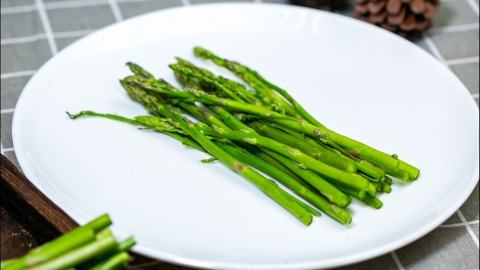Can patients with gout eat asparagus?
Whether gout patients can eat asparagus depends on their specific condition and the amount consumed. It is acceptable to consume small amounts of asparagus during gout remission, but it is not recommended during acute gout attacks or when consuming large quantities of asparagus. Detailed analysis is as follows:

During gout remission, the body's uric acid levels are relatively stable. Although asparagus is considered a medium-to-high purine food, consuming small quantities results in limited absorption and conversion of purines into uric acid, thus having minimal impact on blood uric acid levels. Additionally, asparagus is rich in dietary fiber, vitamins, and other nutrients. Moderate consumption can supplement essential nutrients, promote intestinal motility, aid in maintaining normal metabolic function, and provide certain health benefits for gout patients.
During an acute gout attack, joint inflammation is significant, and blood uric acid levels are in a state of high fluctuation. At this stage, the purines in asparagus are metabolized in the body into higher levels of uric acid after absorption, further elevating blood uric acid levels, worsening gout symptoms, and prolonging the attack phase. Moreover, even during gout remission, excessive consumption of asparagus can increase uric acid production due to excessive purine intake, easily disrupting the balance of uric acid metabolism, leading to elevated blood uric acid levels and potentially triggering gout attacks.
Regardless of the timing, gout patients must strictly control the amount of asparagus consumed, consider their individual condition, appropriately combine it with other foods, and maintain a balanced diet.




